ANEESA KHAN’S first connect to creativity was while watching Bollywood cinema and observing the interactions of characters in films. Her fascination with emotions depicted on screen and making audiences feel something inspired her to become a writer and director. The Pakistani American filmmaker’s work includes acclaimed short film Woh Ghungroo Wali Larki (The Girl With Anklets), which was selected at multiple international festivals. The multi-talented creative also co-hosts entertaining podcasts Desi Talkies and Aneesa Talks, which aim to break down cultural barriers.
Eastern Eye caught up with Khan to discuss creativity, her new short film, Criteria Kya Hai? and popular podcasts. She also had key advice for aspiring short filmmakers.
Tell us about your short films.
Woh Ghungroo Wali Larki is set in 1980's Karachi, Pakistan. The story follows a girl's passion for dance as she overcomes societal and political obstacles. In 2022, I directed the documentary short, Plan B in Qatar, which gave a platform to women who have been impacted by the illegality of emergency contraceptives in Qatar.
What inspired your most recent short film, Criteria Kya Hai?
Criteria Kya Hai? comes from my personal experiences and Pakistani American heritage. My time spent freelancing in Pakistan during my teenage years and my education at North-western University in Qatar expanded my understanding of south Asian and Muslim identity. These experiences influenced my desire to create media that represents people like me. A Pakistani American woman can be shown dating and having a good relationship with her parents.
A still from Criteria Kya Hai?Tell us about that.
She doesn’t have to take off her hijab to feel liberated. She is liberated by her ability to choose how she wants to dress and live her life. The Pakistani American woman is a human being, just like everyone else. The story is also inspired by my own struggles with anxiety, while navigating significant life events like moving back home and my sister's wedding.
What is the key message of Criteria Kya Hai?
It’s about the importance of clear communication and understanding oneself beyond societal stigmas and expectations. The magical glasses in the film symbolise the desire to see and understand people’s true feelings and vulnerabilities, promoting empathy and deeper connections. It also emphasises empowerment through culture and religion, rather than feeling oppressed by them. The film aims to challenge stereotypical portrayals of south Asian women by showcasing a strong, career-driven, and family-oriented protagonist who finds strength in her cultural and religious identity.
How would you describe the story?
Ultimately, it’s a story about self-acceptance, the complexity of human relationships, and finding clarity and happiness within one's cultural framework.
What inspired your podcast, Desi Talkies, which you host with Ananya Sethi?
In our first meeting, Ananya and I spent eight hours straight, talking about south Asian films, TV and music. It was during this marathon conversation that we instinctively decided to start a podcast together, aimed at diasporic south Asians like us. Our respective careers span the entertainment industry and also reflect the dynamic relationship between India and Pakistan.
Tell us about the podcast.
Desi Talkies is a show where we talk about south Asian pop culture, Bollywood, Lollywood, and everything in between. It is currently on a hiatus for the best reason. Ananya and I are both working on various projects in the film and TV industry. We can only continue to review and discuss what we see on-screen if we’re working towards accurate south Asian media representation in our own professional careers.
You also host online series called Aneesa Talks?
Through my own personal work, I fell in love with journalism and the interview process; and its ability to highlight and give space to those who have paved the way for creatives like myself. However, I found that my work was not receiving the outreach that it deserved, so I started my own series, Aneesa Talks. This series features free-flowing conversations with media personalities who may not receive the exposure they deserve.
Aneesa Khan and Sarwat Gilani (left)What has been the most memorable interview?
In 2021, I was lucky enough to meet Sarwat Gilani in person in Karachi, Pakistan and conduct an interview with her. That was an experience of a lifetime. Sarwat is a pioneer for strong women in the Pakistani media industry. I grew up watching every drama she was in. We discussed the recent success of (the acclaimed film) Joyland, her trajectory in the Pakistani entertainment industry, and thoughts on the slow progression of Pakistan’s #MeToo movement. To meet her in person and see how humble and grounded she was - it was better than I could’ve ever imagined it to be.
Who would you love to interview?
My dream interview would be filmmaker Anurag Kashyap, who I’ve long admired because he single-handedly created nuance in a once so redundant Bollywood. Kashyap has maintained focus on the real world and showcasing matters as he would believe them to play out in India. Therefore, for Kashyap, cinema is not some escape, but a chance to give the public a taste of how terrible the real world can be, at times.
What is the plan going forward?
Right now, I’m working on developing an original dark comedy and drama limited series. Otherwise, I’ve signed on as an associate producer on a Sikh-American Indie short, Mirrors. I’ve been working as a film consultant on multiple projects. I just want to keep working, meeting other creatives, and hopefully make more of my own projects come to life.
What advice would you give to those who want to make a short film?
My advice to aspiring short filmmakers is to embrace every aspect of the journey, no matter how challenging it may seem. Start with a story that genuinely resonates with you. Surround yourself with a dedicated and talented team who shares your vision. Don't be afraid to reach out to people, even if it means cold-calling or messaging them on social media. Be resourceful and make the most of what you have; sometimes the limitations can spark the most creativity. Plan meticulously, but remain flexible because unexpected challenges will arise. Finally, be persistent and stay true to your voice. Your unique perspective is what will set your film apart.
What inspires you creatively?
My own struggles and triumphs, particularly around mental health and societal expectations, are a constant source of inspiration. They push me to create art that is not only meaningful to me, but also relatable to others. Additionally, working with other filmmakers, helping them tell their stories is possibly one of the most rewarding experiences I’ve ever felt.
www.aneesakhan.com





 Festival goers at Glastonbury festival 2025Getty Images
Festival goers at Glastonbury festival 2025Getty Images  Pyramid Stage crowd swells ahead of the mystery Patchwork act rumoured to be Pulp Instagram/
Pyramid Stage crowd swells ahead of the mystery Patchwork act rumoured to be Pulp Instagram/ Kneecap welcome as political tension surrounds their setGetty Images
Kneecap welcome as political tension surrounds their setGetty Images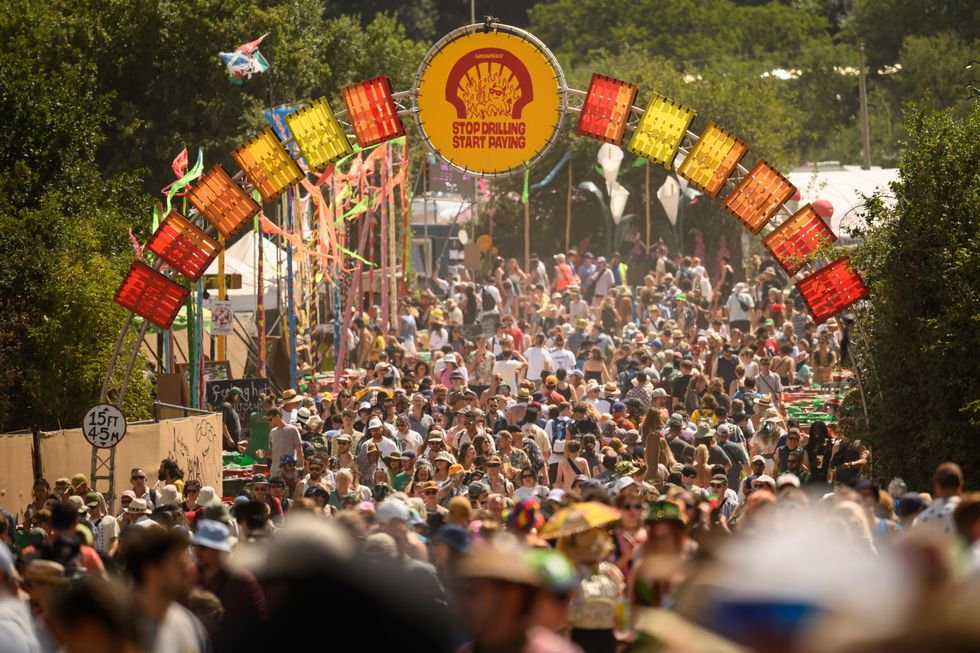 Crowds of festival-goers fill the pathways during day three of Glastonbury festival 2025Getty Images
Crowds of festival-goers fill the pathways during day three of Glastonbury festival 2025Getty Images 








 Daniel Craig poses as James BondGetty Images
Daniel Craig poses as James BondGetty Images  James Bond casting shortlist revealed with Tom Holland Jacob Elordi and Harris Dickinson in leadGetty Images
James Bond casting shortlist revealed with Tom Holland Jacob Elordi and Harris Dickinson in leadGetty Images Is this the youngest James Bond yet as Tom Holland Harris Dickinson and Jacob Elordi lead casting rumoursGetty Images
Is this the youngest James Bond yet as Tom Holland Harris Dickinson and Jacob Elordi lead casting rumoursGetty Images
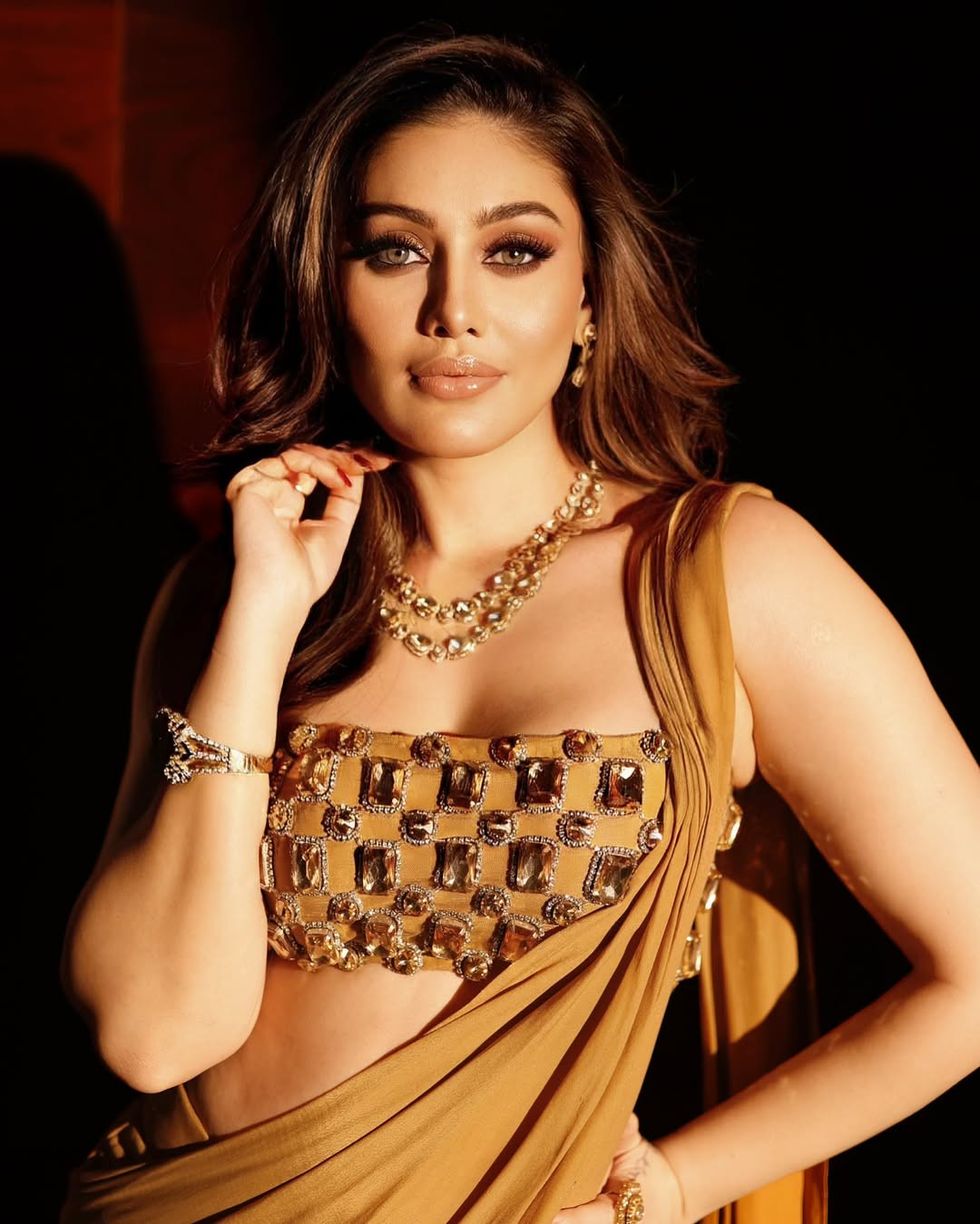 Shefali Jariwala dies at 42 after cardiac arrest, industry mourns Kaanta Laga starInstagram/
Shefali Jariwala dies at 42 after cardiac arrest, industry mourns Kaanta Laga starInstagram/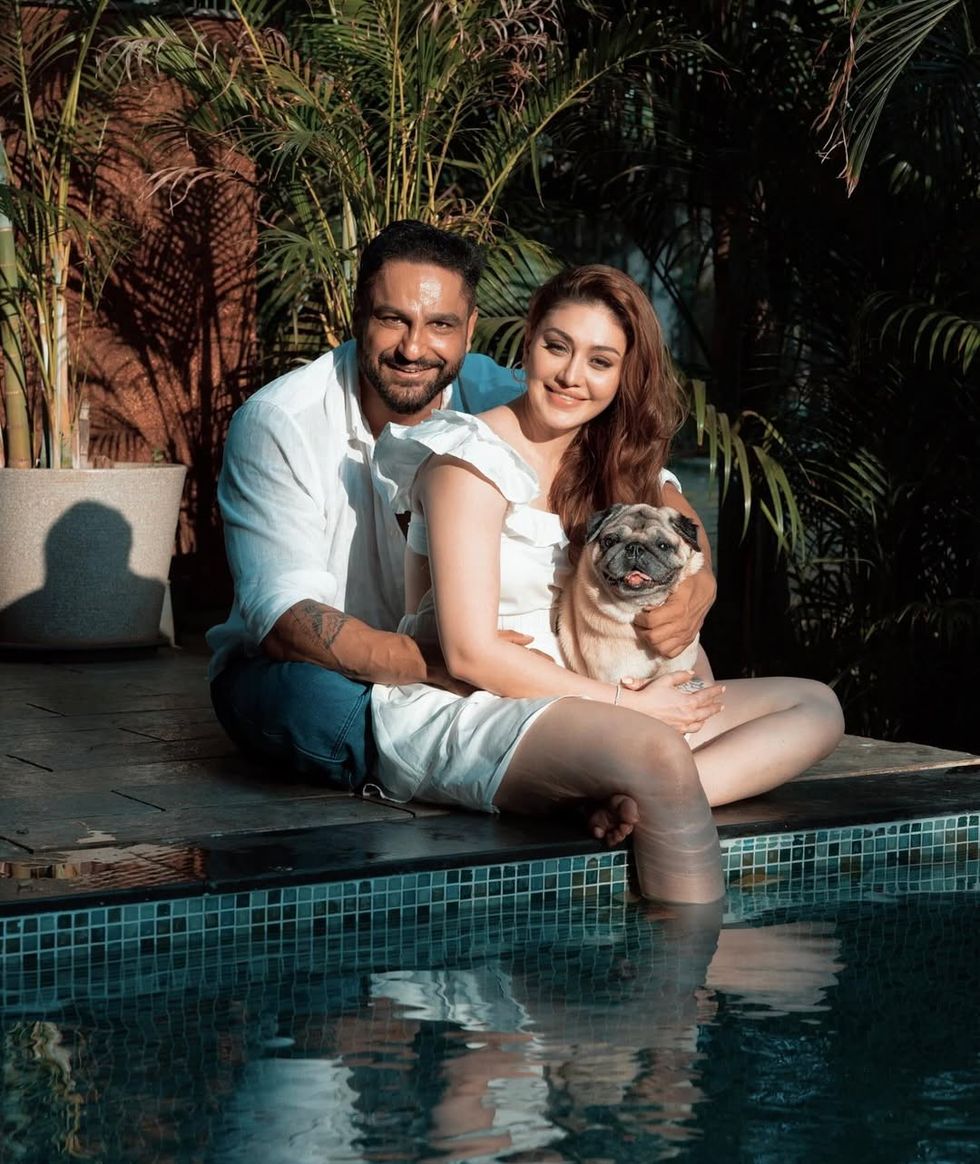 Shefali Jariwala was married to actor Parag Tyagi,Instagram/
Shefali Jariwala was married to actor Parag Tyagi,Instagram/
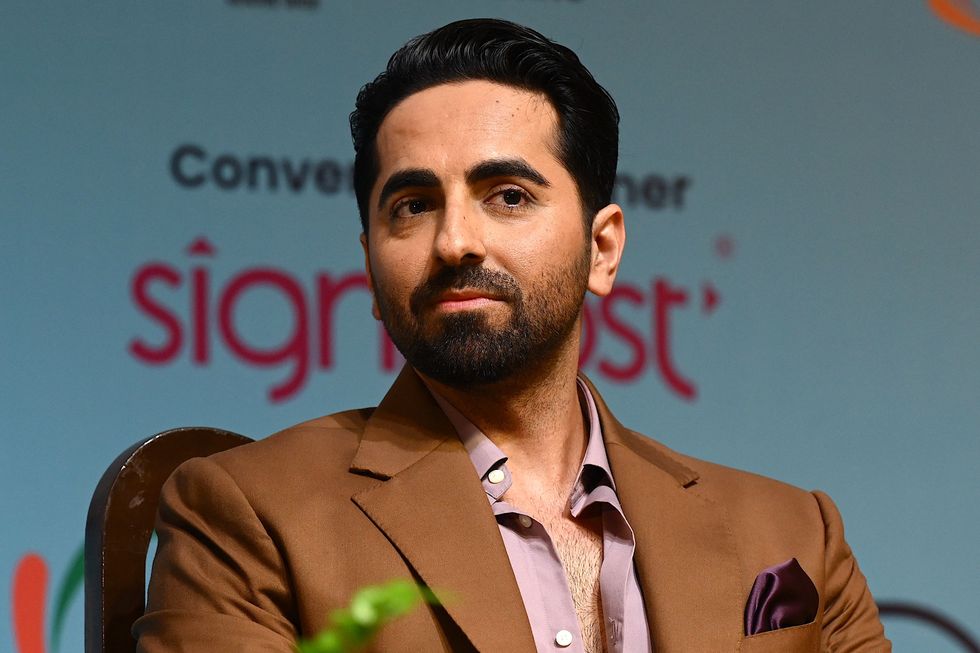 Ayushmann Khurrana attends an event at the FICCI Frames 2024 Getty Images
Ayushmann Khurrana attends an event at the FICCI Frames 2024 Getty Images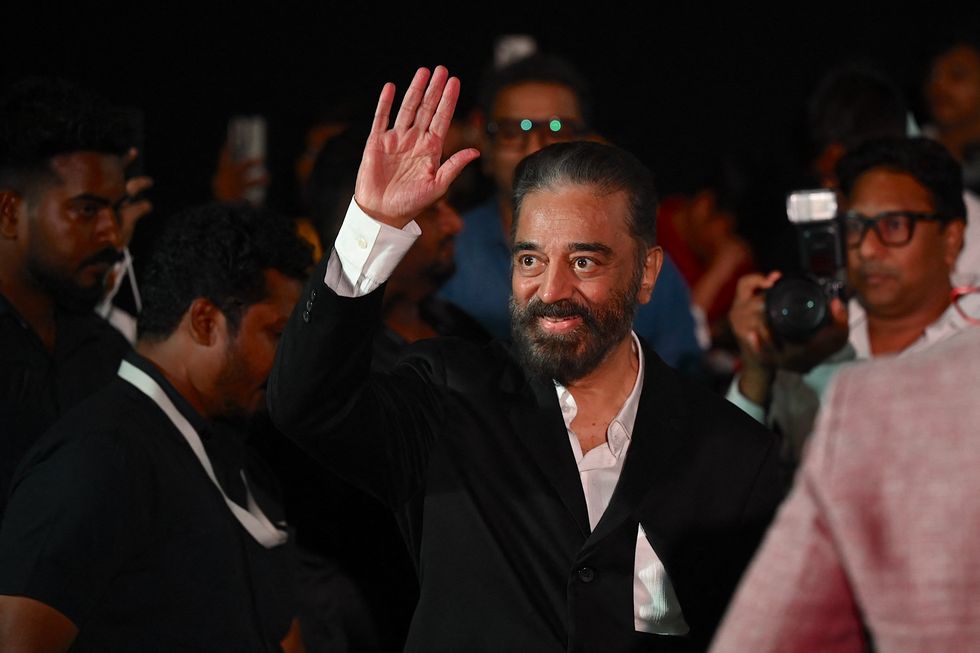 Kamal Haasan waves as he attends a press conference for 'Thug Life'Getty Images
Kamal Haasan waves as he attends a press conference for 'Thug Life'Getty Images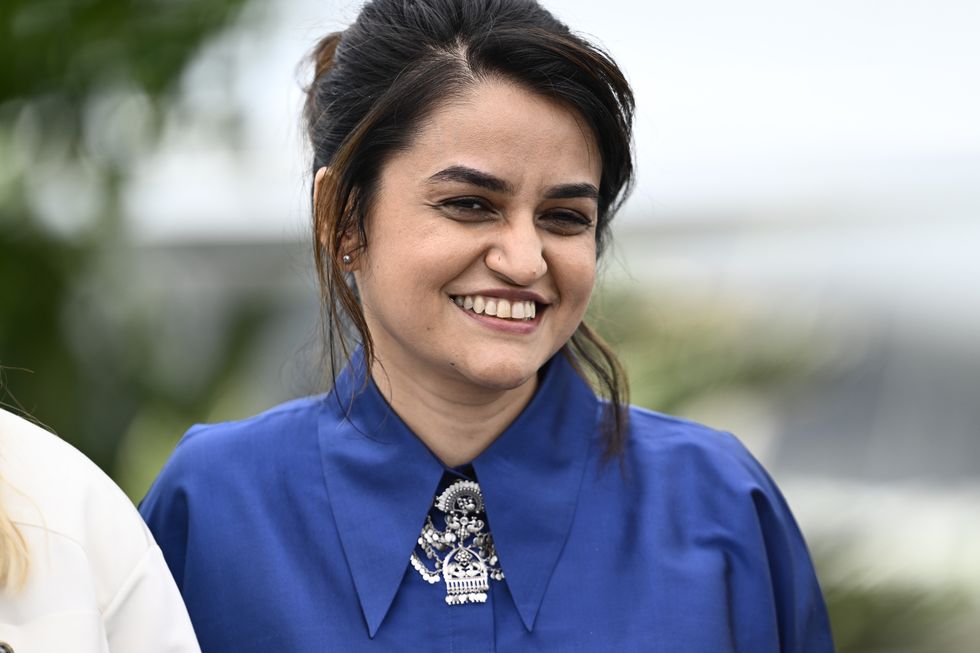 Payal Kapadia smiles during the Jury photocall at the 78th annual Cannes Film FestivalGetty Images
Payal Kapadia smiles during the Jury photocall at the 78th annual Cannes Film FestivalGetty Images
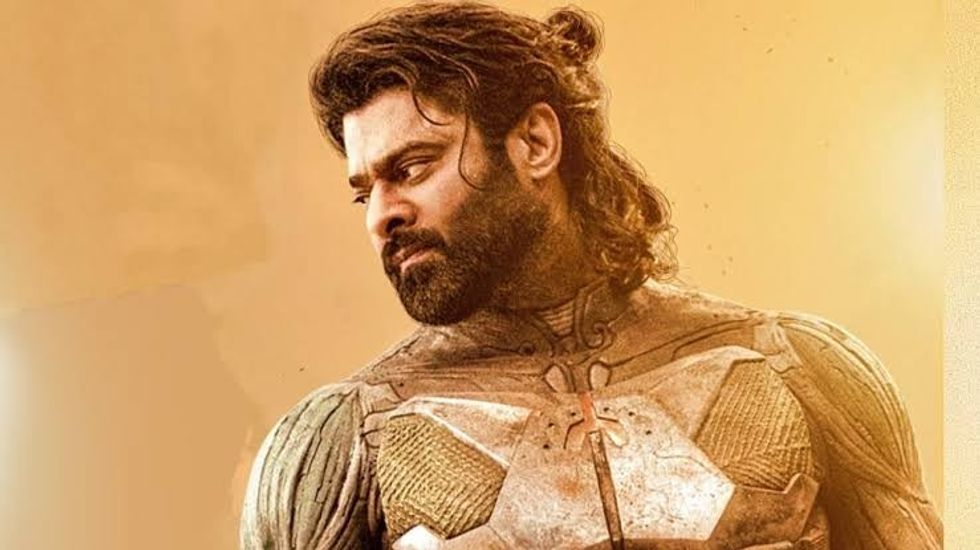 Prabhas in a still from Kalki 2898 AD which completed one yeargetty images
Prabhas in a still from Kalki 2898 AD which completed one yeargetty images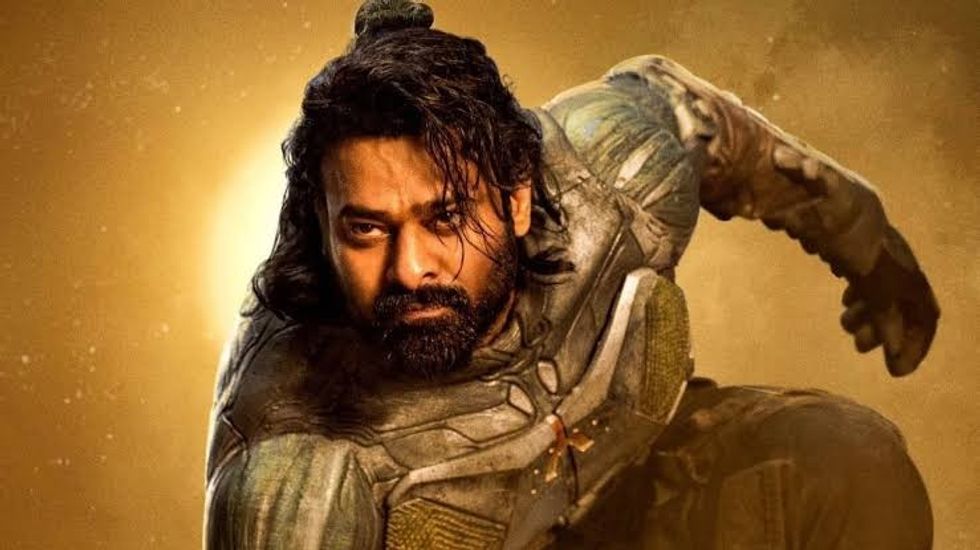 Kalki 2898 AD became one of the top three biggest openers in Indian cinemagetty images
Kalki 2898 AD became one of the top three biggest openers in Indian cinemagetty images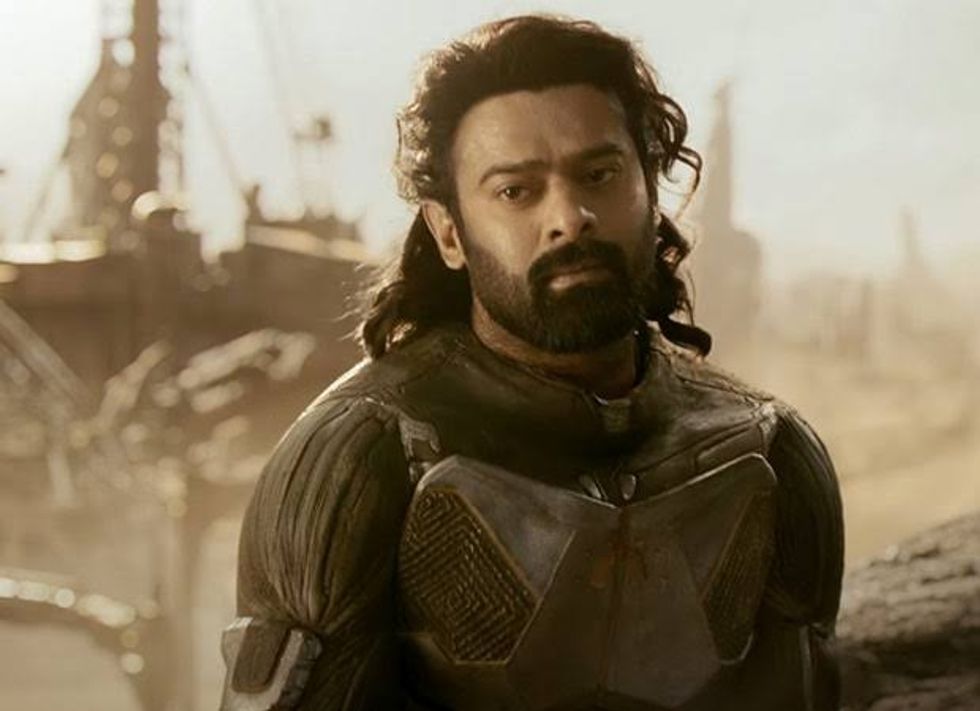 Kalki 2898 AD brought together sci-fi and mythology in a first-of-its-kind Indian filmgetty images
Kalki 2898 AD brought together sci-fi and mythology in a first-of-its-kind Indian filmgetty images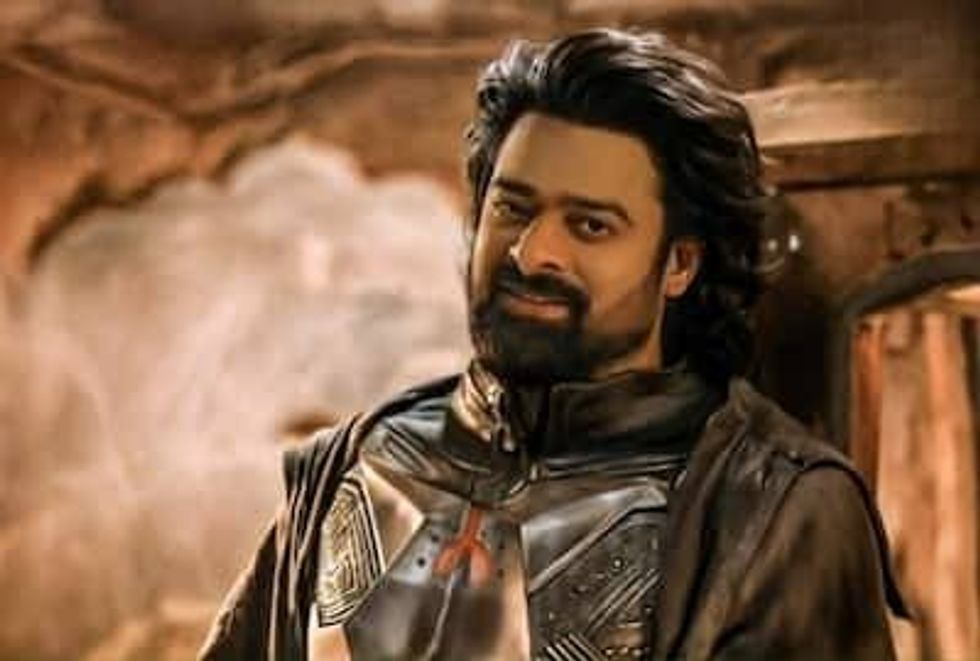 Prabhas plays the futuristic warrior Bhairava in Kalki 2898 AD getty images
Prabhas plays the futuristic warrior Bhairava in Kalki 2898 AD getty images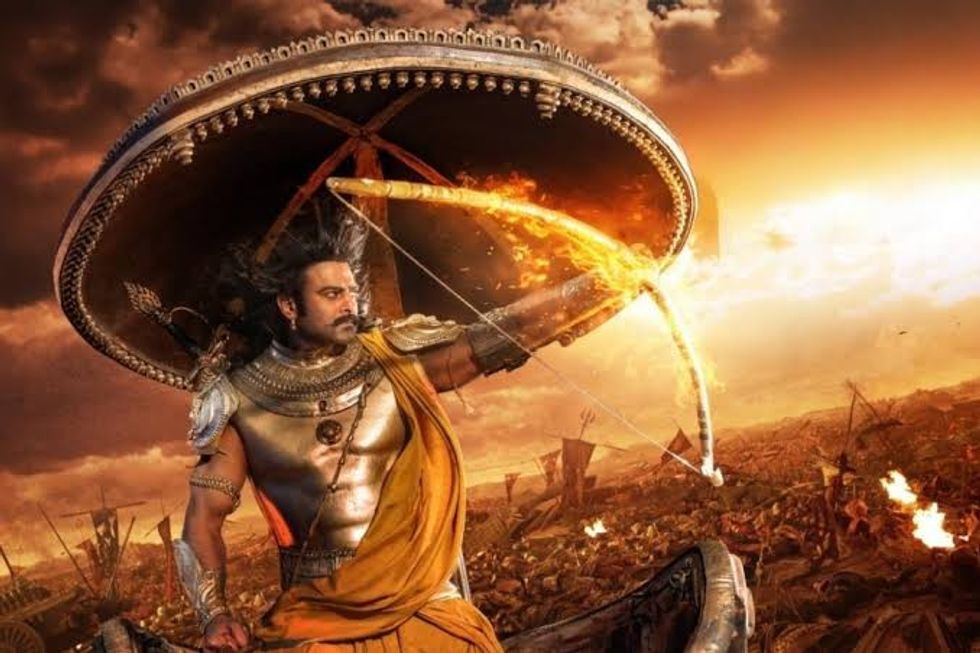 Prabhas in action during a high-intensity sequence from Kalki 2898 ADgetty images
Prabhas in action during a high-intensity sequence from Kalki 2898 ADgetty images
Police may probe anti-Israel comments at Glastonbury